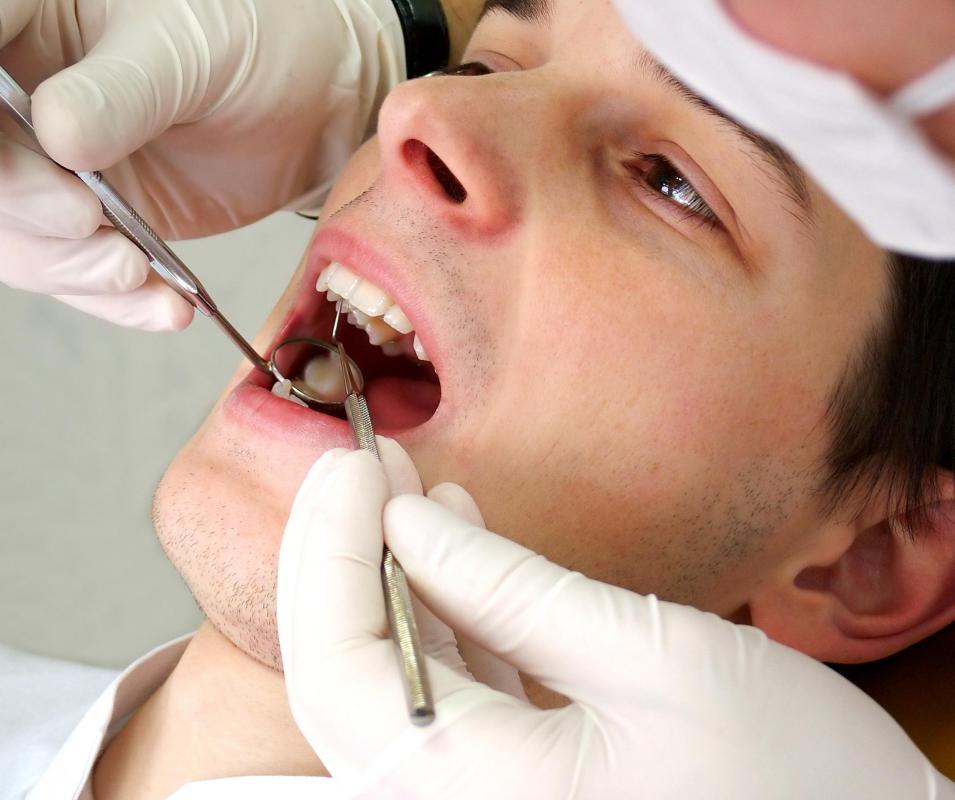At WiseGEEK, we're committed to delivering accurate, trustworthy information. Our expert-authored content is rigorously fact-checked and sourced from credible authorities. Discover how we uphold the highest standards in providing you with reliable knowledge.
What is a Prosthodontist?
A prosthodontist is a dentist who specializes primarily in the replacement and restoration of teeth that have been lost or damaged due to disease, injury or other factors. A prosthodontist can restore both the look and function of these damaged or missing teeth. Typical work for a prosthodontist would include assessing a patient's problem, taking into account comfort, aesthetics, and function of the mouth as a whole. Next a prosthodontist would recommend ways to treat the patient. Finally, a prosthodontist would perform whatever procedure the dentist and the patient have agreed on. Prosthodontists may work closely with general dentists, dental technicians, and dental lab workers.
A prosthodontist is trained to perform many procedures, including whitening and the application of veneers, crowns, bridges, dentures, caps and implants. Prosthodontists are also educated as to the best ways to treat such problems as night grinding, sleep apnea and TMJ, or Temporomandibular Joint dysfunction, which results in jaw pain and wear on the teeth.

Maxillofacial prosthodontists concentrate on procedures that involve a patient’s entire face, rather than just their teeth. Those born with ear, teeth or palate abnormalities, as well as those who experience trauma to these areas as a result of injury or disease, will often require the expertise of a maxillofacial prosthodontist. This specialty may involve facial or jaw surgery. Therefore, many maxillofacial prosthodontists work in hospitals.

Maxillofacial specialists also work closely with plastic surgeons, dentists, neurologists, radiation oncologists, speech pathologists and anaplastologists. Improving a patient’s overall quality of life is the main goal of this type of prosthodontist. A maxillofacial prosthodontist may make slightly more money than a typical prosthodontist.
To become a prosthodontist, one must first attend general dental school. Prosthodontists require two or three additional years of training, at either a hospital or university accredited by the American Dental Association. A Board Certified Prosthodontist is one who has completed a series of written and oral exams and must be recertified every eight years. A prosthodontist may work in a private practice or in academia training other aspiring prosthodontists.
AS FEATURED ON:
AS FEATURED ON:












Discuss this Article
Post your comments